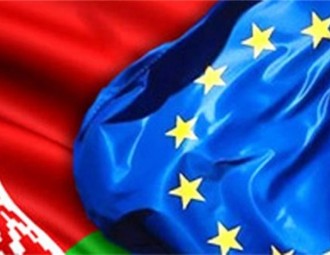Belarus in time of elections: Don’t expect Lukashenka to grow too close to the EU

The Belarusian regime traditionally sees the EU as a threat to its rule and close cooperation with Europe risks bringing additional pressure from the Kremlin.
Since Belarus gained independence in 1991, almost every presidential election in the country has been marred with fraud and the beating up of the opposition, all of which had the effect of bringing the country closer to the Kremlin. But this week’s election in Belarus—voting began on October 6 and will end on October 11—could break that pattern.
The circumstances have changed due to a slowdown in the economy, worries about Russia's intentions and about how President Aliaksandr Lukashenka is dealing with the opposition.
Lukashenka, president since 1994, has recently released the last six of approximately ten political prisoners jailed in Belarus. The highly controlled state media even wrote about democratic forces, and the authorities gave more opportunities for the opposition to campaign.
These changes reflect Lukashenka’s desire to show the West that he is still capable of gradual change—the same could be said of similar gestures made before the 2010 election. But Belarus today has a much greater need to find common ground with the West, and in particularly with the EU.
The war in Ukraine showed that the Kremlin has almost no limitations with regard to its small Western neighbors, especially considering the domination of the Russian media in Belarus and Russia’s strong interest in setting up a military airbase in Belarus.
Even if Lukashenka shows little interest in the national security of Ukraine, Poland, or the Baltic states, he cares about his own. A Russian military airbase in Belarus would weaken the country’s position in future negotiations with Russia on almost every subject and Minsk would no longer be able to maintain its neutrality in the Russian-Ukrainian conflict.
On October 6, Belarus denounced Russia’s plans to establish an airbase. That does not mean that such a base won’t appear in the future.
Then there’s the economy.
According to the National Statistical Committee of Belarus, gross domestic product fell by 3.5 percent. Minsk is now seeking the possibility of obtaining a loan from the International Monetary Fund. On September 26, Lukashenka met IMF director Christine Lagarde in New York, who welcomed some recent progress in strengthening the policy framework in Belarus.
The idea of cooperating with the IMF looks serious, especially because of Belarusian self-imposed painful internal devaluation of the Belarusian ruble. Several Western-educated Belarusian professionals with work experience in the private sector have been appointed to positions in various parts of the economic administration.
Not before time.
Lukashenka has neglected economic reforms for far too long and for good reason. He feared that liberalization would reduce his power. Now, the situation is changing. If the authorities want to retain their power they have to start implementing economic reforms. Otherwise, the Belarusian economy, that is so dependent on Russia, will collapse.
For Lukashenka, the current economic situation poses a serious challenge. When faced with difficulties in the past, the president could rely on a number of options often followed by dramatic policy shifts that allowed him to remain popular. Now, he has less room for manoeuver.
For example, in 2008 when Lukashenka had problems receiving oil supplies from Russia, he paid above and beyond market prices to import it from Venezuela. In 2010, Lukashenka ended the dialogue with the EU and brutally arrested more than a thousand opposition supporters protesting against claims of vote-rigging.
In the past, Lukashenka could make such radical moves because he had confidence in the future. Now, the economy has become his Achilles Heel and his political options are diminishing. Lukashenka does not want to anger the Kremlin or disappoint the West once again. Were it so easy.
Lukashenka has long succeeded in playing off Russia against the EU and vice versa. But now that space has also decreased. If Russia succeeds in positioning its military airbase in Belarus, the West will question Lukashenka’s independence. The possibility of a further deterioration of the economic situation brings with it the threat of wide social discontent. And if Belarus continues making advances toward the EU, the Kremlin could reduce its level of financial support or even try to destabilise the country which is a member of the Russia-led Eurasia Union.
So what does Lukashenka do? Minsk keeps silent about liberalization, even though the authorities are making small steps in this direction. For better or worse, the EU and the United States seem satisfied with these gradual steps.
But don’t expect Lukashenka to grow too close to the EU. The Belarusian regime traditionally sees the EU as a threat to its rule and close cooperation with Europe risks bringing additional pressure from the Kremlin.
-
03.01
-
07.10
-
22.09
-
17.08
-
12.08
-
30.09








































